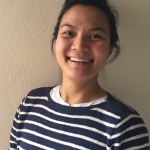#BUCPUA Faculty and Students let off some STEAM


On its most basic level, STEM refers to the acronym of science, technology, engineering and mathematics. But as one takes a closer look, a STEM education is an interdisciplinary approach to learning rigorous academic concepts with a focus of teaching students how to apply those hard-earned skills in more realistic situations, establishing connections between school, community and work. STEM has been a common term implemented in the academic setting for more than a decade now. However, over the past couple of years, students around different college campuses have felt the need to bring a new lens and perspective to the field of science and mathematics. Out of this need emerged STEAM, “a student led effort to ignite communications between disparate fields in academia, business, and thought”[1]. Differently from STEM, STEAM strives to make to make these subjects assessable through the arts so that there can be a more “fully integrate creative problem-solving to invite a unique approach to real world problems” [2]
The initiative started in the Rhode Island School of Design and has now expanded to several colleges throughout the U.S. including Brown, MIT, Yale, Harvard and most recently BU. The different universities come together on a yearly basis to conduct a five-week workshop series in which students develop projects based on the technical skills they have learnt in the classroom with a more creative and artistic vision. Each year the workshops have a theme, “usually something involving a technological aspect and a human element”[i], this year’s being City + Data. The workshops included BU professors from the department of City Planning and Urban Affairs, Madhu Dutta – Koehler and Ayako Maruyama, who presented a more humanistic way of looking at cities and the data it can offer. Students were challenged to think about the existence of a city through a more qualitative manner, investigation what kinds of information you can gain out of a city that are not quantifiable nor numerical. Both guest speakers were stressing the importance of looking at cities through a different lens, one that would allow different sets of data to be collected. By looking at the urban setting with a more humanistic and creative approach, researchers were able to extract new sets of information what would’ve gone undiscovered. The idea was to still maintain the Students also participate in critique sessions, where they are constantly questioning if their projects are indeed addressing important needs and getting at the heart of the conference’s theme.
Hayley Walker – Director of External Communications, Project Coordinator and club founder – puts its best: “the club is aimed more towards people in the STEM field that like arts but don’t know how to integrate it in their studies”[3].Hayley, a senior in the college of engineering identified the need for recognition and assimilation of the creativity displayed by students in the College of Fine Arts into her own field. “I’m in engineering, but I’ve always really liked art, and it was hard to find a place where I could practice both those things together”[ii]. Her freshmen year of college she attended a STEAM workshop at Brown, which allowed her the opportunity to combine both these passions, and is what inspired her to bring STEAM to BU. She went on to describe the several projects that the club is carrying out at the moment, all with different levels of technology and artistic intent.
STEAM stresses the importance of challenging the thinking and understand we hold about our specific fields and areas of study. The more students develop the blend of thinking each subject develops, the more well rounded and complete their way of thinking about a problem will be.
[1] “About Us.” STEAM. Brown University and Rhone Island School of Design, n.d. Web. 07 Feb. 2017.
[2]“Boston University STEAM.” BU STEAM. Boston Universiity, n.d. Web. 07 Feb. 2017.
[3] Walker, Hayley. “Steam Interview with Hayley Walker.” Personal interview. 30 Jan. 2017.
[i] Walker, Hayley. “Steam Interview with Hayley Walker.” Personal interview. 30 Jan. 2017.
[ii] Walker, Hayley. “Steam Interview with Hayley Walker.” Personal interview. 30 Jan. 2017.
– Cecilia de Almeida, CAS ’19